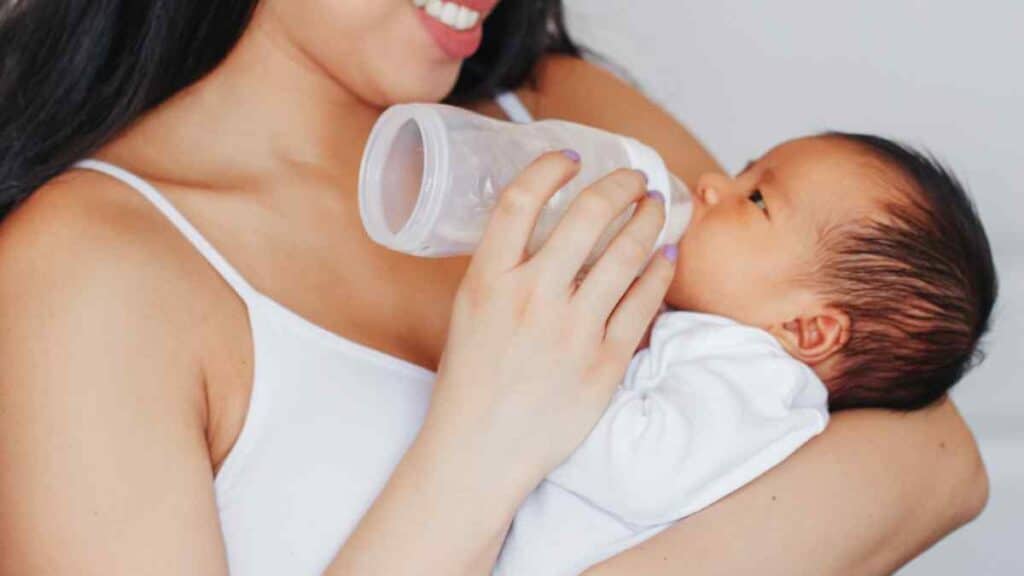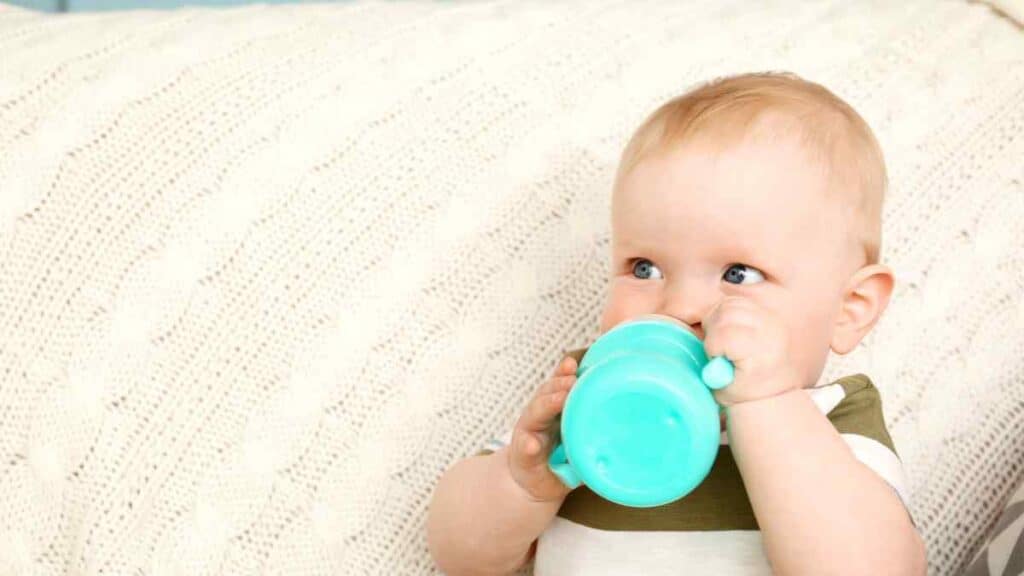Bottled water for babies is crucial for parents who often travel with their kids. So, if you’re new to parenthood, it’s only natural to be curious about what bottled water to bring for your baby. But with all the options to choose from, how can you tell which one is the best one for your growing kid?
If you want to learn more about water for baby formula, then continue reading. This content will discuss bottled water, including the different processes of water purification and many more!

Is Bottled Water Safe for Babies?
Yes, parents can use bottled water for babies for baby formula. You can also give low-fluoride bottled water once they’re older than six months. Although breastfeeding is more recommended for babies, formula powder can be a practical alternative if breastfeeding isn’t possible.
Parents can mix distilled or purified water with their baby’s formula. If these aren’t available, another option is to boil tap water. Doing so will help eliminate any existing harmful pathogens that may have contaminated the water.
Giving your babies drinking water before reaching six months may cause them to involuntarily reduce their baby formula or breast milk intake, causing them to experience growth stuttering and other health issues.
Primary Types of Bottled Water for Baby Formula
There are various types of bottled water that you can use to mix infant formula. Let’s take a closer look at a few of them:
Mineral Water: Mineral water is an excellent choice for parents, especially if they want drinking water that goes well with their baby’s infant formula. Companies primarily get their supplies from natural spring water or still waters that contain minerals that are naturally occurring in nature.
Fluoridated Water: Another option that you can consider is fluoridated water. Although it does contain more than a few drops of fluoride, it can help provide your child with its needed mineral supplements without exposing your baby to too much fluoride.
Purified Water: Purified water is a bottled water product that is safe for your baby. It goes through several processes to help eliminate harmful pathogens and other impurities as you prepare your baby’s infant formula.
Distilled Water: Similar to purified water, distilled water also goes through stringent steps to eliminate any organic or inorganic byproducts that can potentially cause adverse effects on your child’s health.

Essential Aspects to Consider When Shopping for Bottled Water for Formula
Now that you’ve learned the basic types of bottled water for babies available for your baby, it’s time to figure out which is the best for your needs. Here are a few factors to remember when consider when shopping for bottled water:
Consider Where It’s Sourced
Companies get their supplies from various resources. So, buying products from a company you trust is best. Some brands market their products as sourced from glaciers, mountain springs, or natural streams. However, it can be challenging to verify such information as you can’t thoroughly verify where they source their products.
Filtration
Another factor that you need to consider is filtration. Various types of filtration systems these days work differently from others. Depending on what you need for your baby’s infant formula, you must choose a product that goes through the most potent process to filter out unnecessary chemicals and biological byproducts in the water.
Types of Bottled Water for Formula
There are various types of bottled water available in the market today that’ll fit your child’s powder formula. A few of the most common ones available are distilled, mineral, and spring water. So, to safely prepare baby formula, you need to check the mineral content stated in the packaging. You should also check if the product it’s made of safe plastic.
When Do You Need to Boil Water
Typically, packing products are used to indicate if you should boil the water used for powdered formula. However, products these days would often suggest you seek your healthcare provider’s opinion on whether you need to boil water when preparing infant formula.
The American Academy of Pediatrics suggests boiling the water, especially for babies under three months of age. It would be best if you also did this when preparing a warm formula for babies born prematurely or those with weakened immune systems. To do this, the American Academy of Pediatrics suggests boiling the water and letting it cool for at least five minutes. Then, you can put it in the container to be ready for use.
However, it would be best if you remembered that boiling water only addresses the biological contaminants, not the chemicals in the water itself. That’s why it’s still best to use bottled water as you prepare infant formula.

Why Parents Often Choose Bottled Water Over Tap Water
If you think about it, every kind of water looks the same. However, water coming from various sources can be different.
Unlike commercially available water, municipal water systems contain traces of fluoride, which may cause faint white lines on your baby’s teeth when exposed in high amounts.
Fluoride is an effective way to protect your teeth from tooth disease and other dental problems. However, when exposed to high amounts, fluoridated water can cause fluorosis, a dental condition that causes discoloration on a person’s teeth.
Since most infant formula these days contains fluoride, parents must use deflouridated products when making formula for their babies. It’s equally important to remember that well water isn’t entirely safe for baby formula. Since it doesn’t go through any water filtration process, there’s a big chance of bacterial contamination or even lead exposure.
Meanwhile, if you’re using tap water to mix baby formula, it’s highly advisable to boil the water first before mixing it with your infant’s baby formula.
A Simple Way to Test The Baby Bottle’s Temperature
No parent would want to let anything wrong happen to their child. So, to ensure you’re not giving them a prepared formula that’s too hot, it’s best to learn how to test it in advance. Fortunately, testing the temperature of your baby’s formula is easy.
The easiest way to determine if your prepared formula is at the right temperature is by shaking a few drops on your wrists. It’ll help you decide whether it’s the same as your body temperature.
Before feeding, you can also consider adding your baby’s powder formula to room-temperature water. It’s an effective way to determine if the formula temperature is at the right level.
Remember that a prepared formula will only last for an hour. So, it’s best to discard it after feeding it to your baby. Meanwhile, it would help if you stored any prepared mix formula inside the refrigerator to prevent contamination.
You can use powdered formula, ready-to-feed formula, or concentrated liquid formula for your baby.
Ways to Learn Your Baby’s Hunger Signals
Babies can quickly get grumpy when hungry. So, it’s essential to learn how to read their hunger signals to know when to get ready to feed them.
One telltale sign that your baby is hungry is when they get fidgety. You’ll also notice them making their lips even after draining their mixed formula. So, if you see these signs, then there’s a considerable sign that your baby may still be hungry.

Summing Up
Choosing the best-bottled water for your baby should start with a discussion with your baby’s doctor. Doing so will help you get the best tips for formula preparation and many more. You can also consider coordinating with the local health department to learn more about your baby’s health.
This article is specially written to help you understand the concept of survey. You can comment down below if you have any questions regarding survey.



